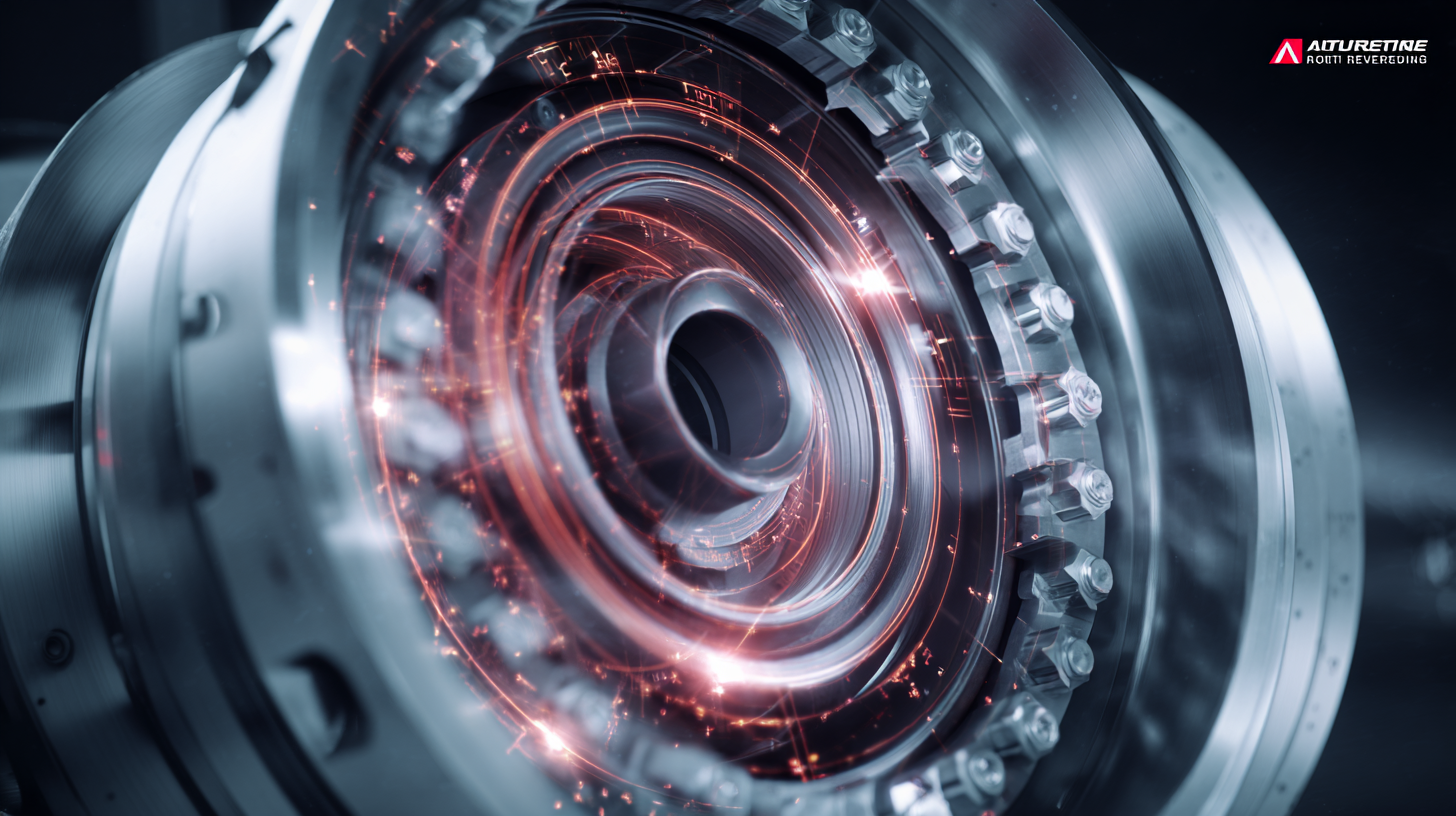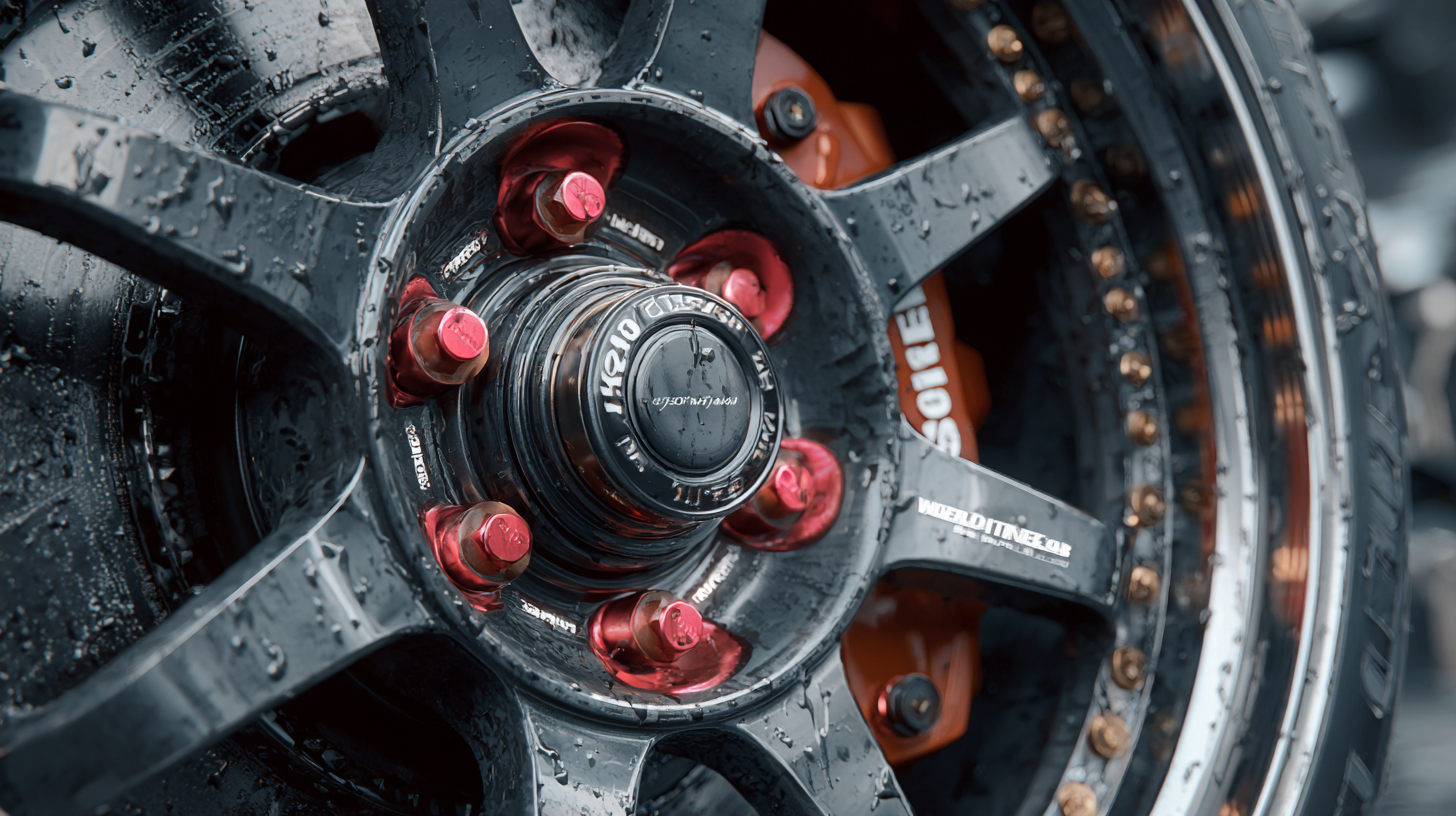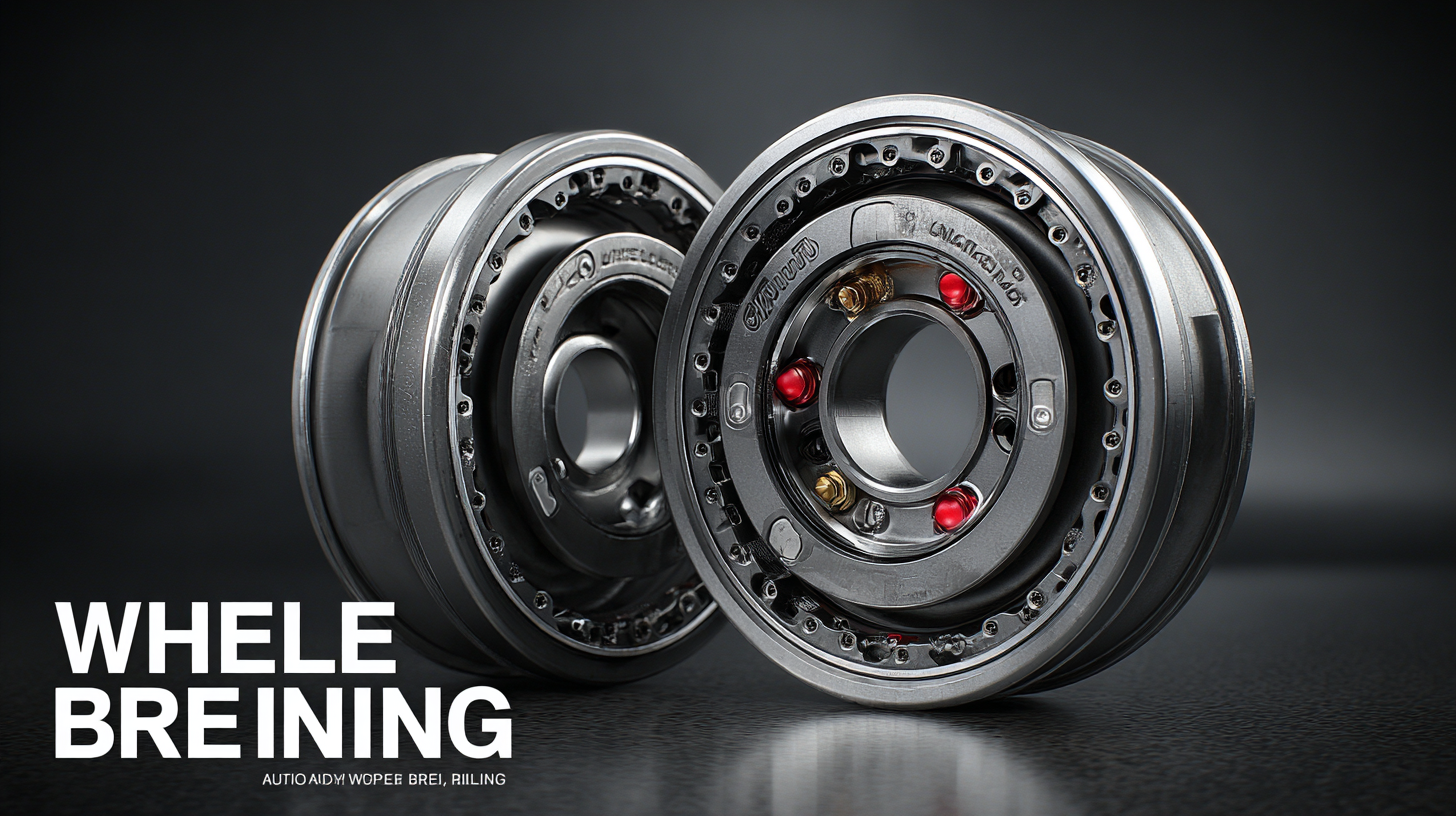As the automotive industry continues to evolve with advancements in technology and materials, the performance of vital components like the Auto Wheel Bearing becomes increasingly crucial. According to a report by MarketsandMarkets, the global automotive bearings market is expected to reach $13.2 billion by 2026, driven by the rising demand for high-performance vehicles and the need for improved fuel efficiency. This growth highlights the significance of high-quality wheel bearings, which not only enhance vehicle performance but also contribute to safety and longevity. With innovations such as ceramic bearings and advanced lubrication systems gaining traction, the future of automotive performance is set to be redefined. Understanding the impact of these developments on Auto Wheel Bearings will be essential for engineers and enthusiasts alike as they navigate the shifting landscape of the automotive world.

The automotive industry has undergone significant advancements over the years, with wheel bearings playing a crucial role in enhancing vehicle performance. In recent studies, it has been noted that the quality of wheel bearings can directly impact fuel efficiency and overall driving dynamics. According to a report by Grand View Research, the global automotive wheel bearing market was valued at approximately $30 billion in 2022, and it is projected to grow at a compound annual growth rate (CAGR) of 5% from 2023 to 2030. This growth emphasizes the increasing importance of high-performance wheel bearings in modern vehicles.
As manufacturers continue to innovate, the evolution of wheel bearings now includes the integration of advanced materials and technologies. For instance, hybrid wheel bearings that combine ceramic and steel components can reduce friction by up to 30%, which not only improves performance but also extends the lifespan of the bearing itself. Furthermore, the trend towards electric vehicles is driving the demand for lightweight bearing solutions. Industry experts suggest that as EV market penetration rises, the need for optimized wheel bearings will become even more critical, as they directly contribute to range efficiency and battery life. The future of automotive performance is undoubtedly linked to the ongoing evolution of wheel bearing technology.
Upgrading to high-quality auto wheel bearings can significantly enhance vehicle performance and safety. According to a recent report by the Automotive Aftermarket Suppliers Association (AASA), the failure of wheel bearings is one of the leading causes of vehicle breakdowns, contributing to 20% of all roadside assistance calls. By investing in premium wheel bearings, drivers not only reduce the risk of unexpected failures but also improve overall vehicle reliability.
One of the key benefits of high-quality auto wheel bearings is their ability to reduce friction and enhance fuel efficiency. Research by the Society of Automotive Engineers (SAE) indicates that high-performance wheel bearings can improve fuel economy by up to 5%. This reduction in friction not only aids in extending the life of the vehicle but also contributes to a smaller carbon footprint, aligning with modern sustainability goals. Additionally, these bearings often feature advanced materials and designs that can withstand extreme conditions, providing better performance under heavy loads and during extended usage periods.
| Benefit | Description | Impact on Performance |
|---|---|---|
| Enhanced Durability | High-quality bearings are designed to withstand higher loads, reducing the frequency of replacements. | Longer lifespan and reduced maintenance costs. |
| Improved Performance | High-grade materials allow for smoother operation, improving the overall driving experience. | Better handling and responsiveness in various driving conditions. |
| Noise Reduction | Premium bearings often incorporate design features that minimize noise generation during operation. | Quieter rides and less cabin noise, enhancing comfort. |
| Better Fuel Efficiency | Low-friction bearings reduce drag on the vehicle, leading to improved fuel economy. | Cost savings over time through better mileage. |
| Increased Safety | With better performance and durability, high-quality bearings contribute to the overall safety of the vehicle. | Enhanced vehicle reliability reduces the risk of failure while driving. |
The automotive industry is undergoing a significant transformation, driven by innovative technologies that enhance performance and reliability. One area that is witnessing remarkable advancements is wheel bearing technology. Digital innovations are reshaping how wheel bearings function, making them smarter and more efficient. The integration of IoT and sensor technologies allows real-time monitoring of wheel bearing conditions, enabling predictive maintenance that can prevent costly failures and downtime.

Moreover, these technological enhancements are not just about longevity; they also contribute to improved overall vehicle performance. With the ability to analyze data from wheel bearings, manufacturers can fine-tune vehicle dynamics for better handling and comfort. Advanced materials and manufacturing techniques are further enhancing the durability and efficiency of these components, leading to reduced friction and increased energy savings. As the industry moves towards electrification and autonomous driving, the role of high-performance wheel bearings will become even more critical, highlighting their importance as a foundation for future automotive achievements.
The performance of wheel bearings plays a crucial role in ensuring both the safety and efficiency of vehicles. High-quality wheel bearings reduce friction, enabling smoother tire rotation and promoting better fuel economy. When wheel bearings are functioning optimally, they minimize the energy loss associated with tire movement, ultimately contributing to enhanced overall vehicle performance. However, if these components wear out or become damaged, they can lead to increased rolling resistance, negatively affecting fuel efficiency and increasing wear on other mechanical parts.
Moreover, wheel bearing performance significantly impacts vehicle safety. Faulty bearings can cause unstable handling, increased stopping distances, and, in severe cases, wheel detachment. This not only jeopardizes the driver and passengers but also poses a risk to other road users. Regular maintenance and timely replacement of wheel bearings are essential to prevent these issues, ensuring that vehicles operate safely and efficiently. As technology advances, manufacturers are developing improved wheel bearing materials and designs to enhance durability and performance, making them vital to the future of automotive safety and efficiency.
 When it comes to enhancing automotive performance, selecting the right wheel bearing is crucial for automotive enthusiasts. Wheel bearings are vital components that enable your vehicle’s wheels to rotate smoothly. Choosing the right one not only impacts performance but also safety and longevity. It's essential to understand the different types of wheel bearings, such as ball bearings and roller bearings, as each offers unique advantages depending on your vehicle's use.
When it comes to enhancing automotive performance, selecting the right wheel bearing is crucial for automotive enthusiasts. Wheel bearings are vital components that enable your vehicle’s wheels to rotate smoothly. Choosing the right one not only impacts performance but also safety and longevity. It's essential to understand the different types of wheel bearings, such as ball bearings and roller bearings, as each offers unique advantages depending on your vehicle's use.
Tip: Always look for high-quality bearings that match your vehicle's specifications. Brands that are known for their durability and reliability, such as Timken or SKF, typically offer products that withstand the demands of both daily driving and high-performance environments. Additionally, consider the environment in which you drive. If you're in a region with heavy rainfall or rough terrains, investing in weather-resistant bearings can significantly extend their lifespan.
Tip: Don’t overlook the importance of proper installation. While it may be tempting to save costs by doing it yourself, incorrect installation can lead to premature failure and costly repairs. If you're uncertain, consulting with a professional or seeking advice from experienced enthusiasts can help ensure that your bearings are fitted correctly and function as intended. Remember, the right wheel bearing is a crucial element in achieving optimal automotive performance.
